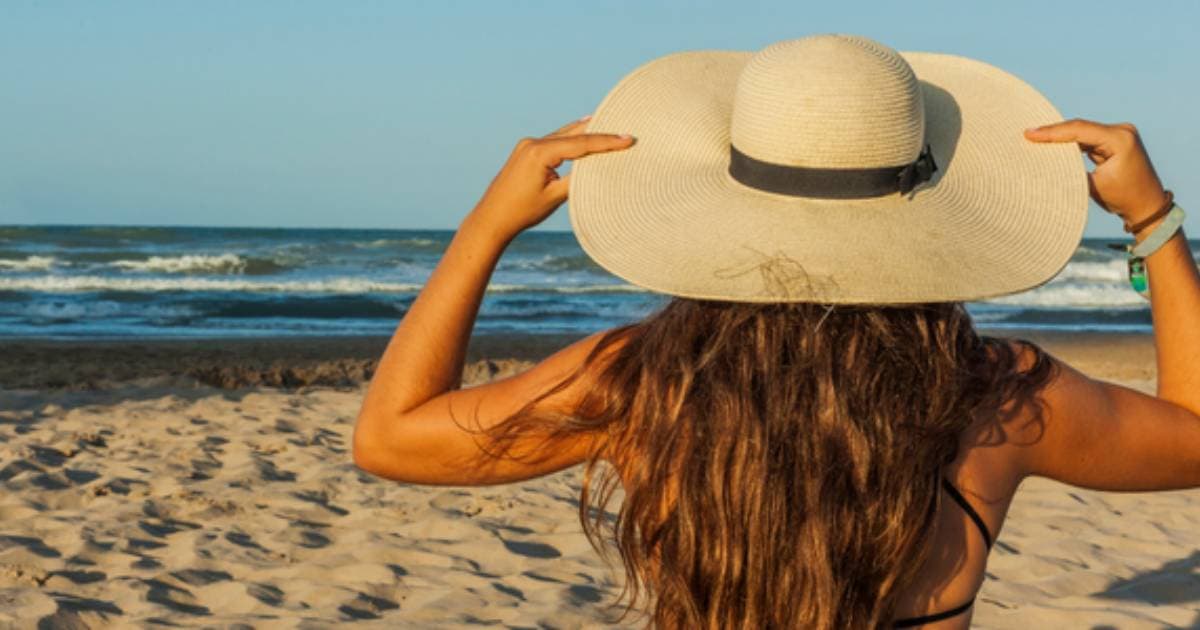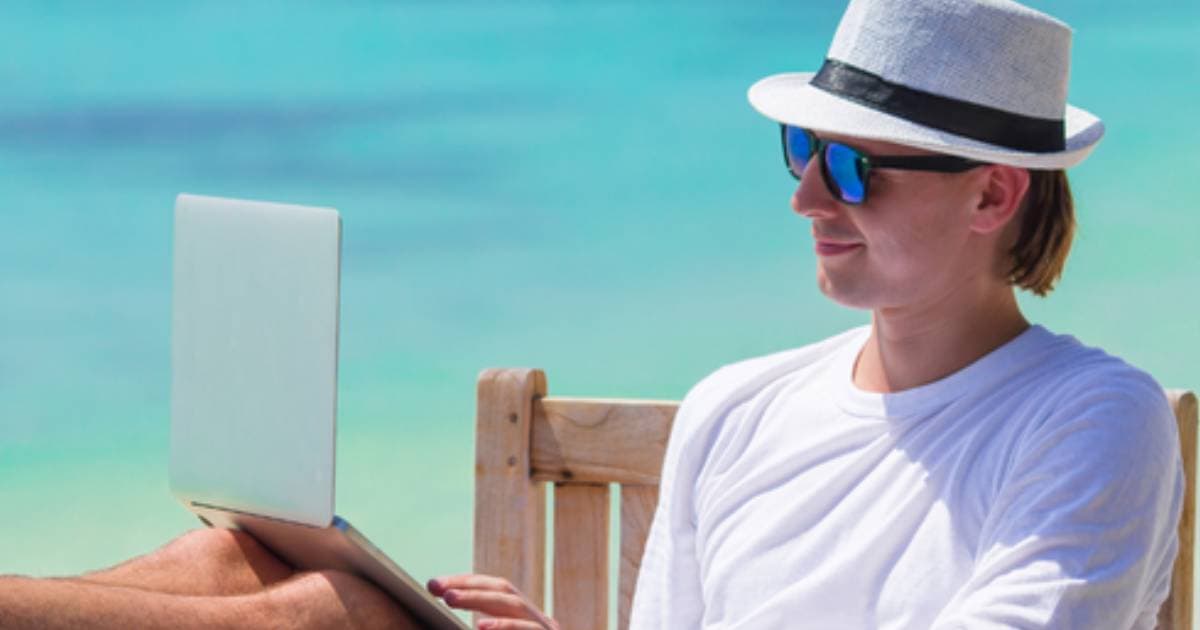UV protection: the 10 most practical methods

Useful Tips and Tricks for Proper UV Protection!
It can't be stressed enough how important proper UV protection is, meaning defense against harmful UV radiation, and it goes far beyond just protecting individual body parts.
It's not enough to just take care of your eyes or your skin; you need to address this issue comprehensively. It's vital to understand the potential health risks of neglecting UV protection and what you can do to maximize safety.
The Dangers of UV Protection Failure
You expose yourself to risks like these if you don't protect yourself against harmful rays:
- Allergies
- Skin aging
- Skin disorders (including malignant diseases)
- Conjunctivitis
- Cataracts
- Various eyelid tumors
- Side effects: e.g., premature wrinkling due to excessive squinting
The risk is significant, so you must do everything you can to minimize the possibility of developing these problems. Here are some useful tips!

What is the Essence of UV Protection?
To know what to do, we first need to clarify what UV protection means and what UV radiation actually is.
UV is a specific range of wavelengths of sunlight invisible to the human eye. The three most well-known types are UVA, UVB, and UVC. UVB, in particular, is responsible for sunburn and skin cancer. The harmful effects of UV radiation are extensive, affecting the whole body, with the greatest risk to your skin and vision.
It's important to note that UV radiation is necessary for the production of essential Vitamin D for your health, but to achieve this, you'd need 15-20 minutes of full-body sun exposure daily. However, during this time, both your skin and eyes are exposed to more harmful than beneficial effects.
UV Protection: Why is it Important for Your Eyes?
The effect of UV light on the eyes can lead to problems even in the short term. While your cornea mostly filters out these harmful rays, prolonged or intense UV exposure can cause damage to the eyes. Without proper protection, you increase the risk of inflammation, cataracts, and ultimately various degenerative conditions.
The 10 Most Useful Forms of UV Protection
1. Strengthen Your Body!
You can prepare your skin and internal organs not only externally but also internally against harmful rays. Various antioxidants found in colorful plant foods can prepare you for sunny hours. For example, red or brightly colored fruits and vegetables are rich in carotene, and lycopene is also important. It's essential to start internal preparation early because the defense mechanism takes weeks to develop.
2. Wear High-Quality Sunglasses!
Sunglasses have likely been a part of your wardrobe for years. You may think of them as stylish accessories that complement your clothes, personality, and provide cover after a night out. It's commendable that various designers and fashion houses tirelessly create new collections according to current trends, as sunglasses can indeed be a means of self-expression. However, don't forget their most important function: protecting your vision.
Besides appearance, consider the following factors when buying sunglasses:
- Always comply with the safety and quality standards of your country!
- Ensure they fit your face shape to provide maximum coverage!
- Choose only sunglasses with 100% UV protection!
- Look for UV 400 sunglasses: always seek the UV 400 label!
Quality matters: lower-quality glasses may have UV filters, but they scratch easily, allowing harmful rays through surface damage!

What Types of Sunglasses Can You Choose From?
The sunglasses market offers numerous solutions, all aimed at further enhancing protection against harmful rays.
Polarized Sunglasses: Glasses with mirrored lenses reduce the amount of light entering the eyes and minimize reflections. They are particularly suitable for driving or water sports.
Photochromic Sunglasses: Photochromic lenses can be a solution for those who wear prescription glasses, functioning as regular glasses indoors and sunglasses outdoors. These special lenses track the intensity of UV radiation and adjust the darkening or lightening accordingly.
Prescription Sunglasses: If eyeglass wearers still want to wear separate sunglasses, they have the option of fixed-tint sunglasses lenses, which can also be purchased with a prescription.
Computer Glasses: eOpticians offers its own branded (as well as those made by other manufacturers), so-called zero diopter blue light filtering glasses with UV protection. Thus, although they don't have dark lenses, they still protect the eyes from harmful rays. The same version is also available with diopters.
3. Choose UV-filtered Eyewear and Contact Lenses!
If you need vision correction, choose eyewear or contact lenses with UV filters, and you've already done something for your protection.
Glass and plastic lenses are reliable only in the UVB range, so they don't provide a solution against the more harmful UVA rays. Thinner, high-refractive index plastic lenses, however, sufficiently protect against radiation, but only effectively against frontal rays.
UV-filtered contact lenses are also a good choice for lens wearers, but don't expect 100% protection from either lenses or glasses. Whenever possible, always wear sunglasses!
4. Wear a Hat!
Even the best quality glasses or sunglasses can't provide maximum protection because harmful rays inevitably reach the eyes along their edges.
So, if you want to be sure, wear a wide-brimmed hat, visor, or baseball cap, which, in addition to complementing the protection provided by glasses, also shields your head and skin from harmful light.
A fashionable, oversized-brimmed hat can shade not only your eyes but also your shoulders, neck, and chest.
5. Watch the Clock!
You can do a lot to protect your eyes and skin by avoiding sun exposure during the most critical hours. Try to avoid the sun between 10 AM and 3 PM whenever possible.
This is true even if the sky is cloudy because harmful rays are still present, and you may encounter many problems if you think you're safe just because the sun isn't shining.
6. Choose a Sunshade!
At beaches or shores, you often can't find shade under a tree, but it's crucial not to stay in direct sunlight all day.
While you're in the water, you can't avoid sun exposure, but on the shore, there should be shade where you can retreat. A parasol is a perfect solution, which you can buy and take with you on vacations, but most beaches also offer rental options for a few dollars a day.
7. UV Protection for Your Skin Too
Using sunscreen appropriate for your skin type is essential. This is especially true if you have fair, sun-sensitive skin or many moles.
If you're unsure which level of protection is ideal for your skin, ask a dermatologist!
+1 tip: Use tanning creams cautiously: although you can achieve a nice tan with them without exposing yourself to UV radiation, the tan obtained outdoors does not protect against harmful rays!
8. Wear Special UV-protective Clothing
Contrary to popular belief, a plain white T-shirt doesn't protect you from harmful rays. So, in high-risk areas such as beaches or mountains, it's worth using an extra weapon: wearing UV-protective clothing. The UPF label on them indicates UV protection, with a higher UPF number providing greater protection.
Special, UV-protected textile filters at least 98% of UVB rays and 95% of UVA rays, providing 50+ factor protection.
9. UV Protection is Important for Children Too!
Children are more vulnerable to the harmful effects of UV rays because their corneas cannot filter them to the same extent as adults', and their pupils are larger. Therefore, it's just as important for them to have maximum protection and choose suitable sunglasses.

